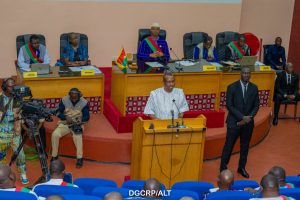Nigeria’s anti-Graft drive targets massive real estate assets

Nigeria’s fight against corruption has reached a new milestone with the seizure of over 750 properties in a sprawling housing estate in Abuja. The Economic and Financial Crimes Commission (EFCC) described this as its largest-ever asset recovery, believed to be linked to proceeds of corruption.
While the agency did not disclose the former owner, it confirmed the estate belonged to a high-ranking ex-government official.
Situated on 150,000 square meters on Abuja’s outskirts, the luxurious development had long raised curiosity among locals. Experts estimate its value to be in the tens of millions of dollars.
The EFCC, established in 2003 to combat endemic corruption, stated the forfeiture aligns with its mission to ensure illicit gains do not benefit perpetrators.
This high-profile recovery underscores the agency’s broader effort to address the systemic abuse of public resources in Africa’s largest oil-producing nation.
Despite its wealth, Nigeria’s over 225 million citizens continue to grapple with poverty, as corruption siphons funds meant for development.
Recent cases highlight this struggle, including charges against former aviation minister Hadi Sirika and his family for alleged abuse of office to favour a company they are connected to.
The EFCC’s latest seizure may signal a shift in holding elites accountable, but with corruption deeply entrenched, the road to reform remains challenging.












